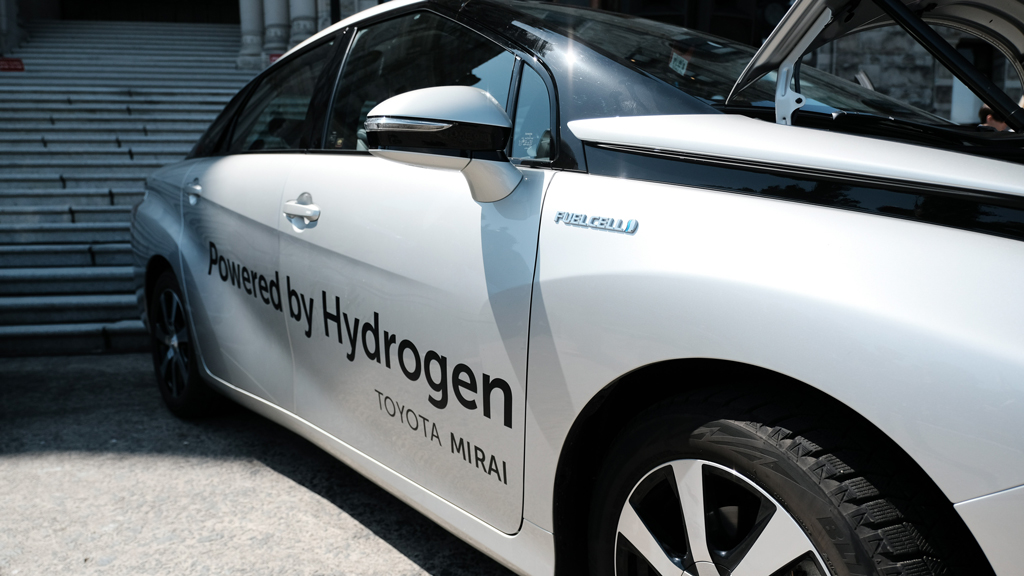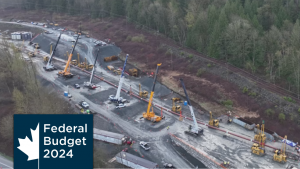B.C. is looking to kickstart its hydrogen industry with a series of short, medium and long-term goals.
In a new hydrogen strategy document, officials noted developing hydrogen as a fuel source is a critical part of achieving net-zero emissions in the province by 2050.
“It is an ambitious target given that two-thirds of the energy we use for transportation, buildings and industry currently comes from fossil fuels,” stated the report. “Meeting our CleanBC goals requires a determined effort to increase energy efficiency, electrify the economy and switch to low-carbon fuels such as biofuels and hydrogen.”
When burned or used in a fuel cell, hydrogen produces no carbon emissions. Independent estimates cited in the report suggest hydrogen has the potential to reduce annual emissions by 7.2 megatonnes by 2050, the equivalent to 11 per cent of the province’s 2018 emissions.
Some of the key hydrogen industry development goals that impact the construction sector are as follows:
2020-2025
- Stimulate hydrogen production through direct support and incentives
- Policy that helps de-risk the development of hydrogen production infrastructure
- Work with industry partners to establish hydrogen deployment hubs in B.C.
- Review provincial, federal and international codes, standards and regulations for hydrogen production and establish a compatible regulatory framework
- Establish a working group made up of representatives from the hydrogen industry, regulatory agencies and government to implement B.C. Hydrogen Strategy actions
- Pilot the use of hydrogen fuel cells in medium- and heavy-duty vehicles, marine, rail, aviation, off-road and other commercial transportation applications
- Provide monetary and non-monetary incentives for fuelling infrastructure and vehicle purchases
- Support the development of hydrogen production and liquefaction infrastructure
- Evaluate the use of hydrogen across different heavy industries, such as at pulp and paper mills, cement plants, petroleum refineries and aluminum smelters to reduce emissions and create economic development
- Develop capacity-building tools for community clean energy and hydrogen projects
- Begin a case study with a small to medium-sized fossil-fuel-reliant community to investigate the feasibility of moving to 100 per cent renewable energy with a hydrogen component
2025-2030
- Consider introducing alternative electricity rates for hydrogen production
- Investigate using brownfield sites for hydrogen production industrial parks
- Review sectoral opportunities for hydrogen offtake
- Develop carbon management frameworks to encourage at-scale production of low-carbon hydrogen
2030
- Support the development of hydrogen liquefaction, distribution and transmission infrastructure
- Achieve a clear and supportive regulatory environment for hydrogen production in B.C.
- Require a phased reduction in the carbon intensity of hydrogen produced and used in B.C.
- Explore policy framework mechanisms for long-duration energy storage using hydrogen
- Support the use of low-carbon hydrogen in industrial processes
- Enable the construction of dedicated infrastructure for hydrogen export
Officials noted B.C. is well positioned to take advantage of the emerging hydrogen sector.
According the province, B.C. can produce both green and blue hydrogen with low carbon intensity unlike most other areas.
More than 98 per cent of B.C.’s electricity is renewable which can be used to produce green hydrogen through electrolysis.
B.C. also has low-cost natural gas reserves, significant geological storage capacity and expertise in carbon capture and storage (CCS) technology. This gives it the opportunity to produce blue hydrogen from natural gas with adequate and permanent CCS.
“Hydrogen is a clean energy solution for powering B.C.’s future as it presents an opportunity to reduce emissions, attract new investment and create skilled, well-paying jobs,” stated the report. “Given our proximity to export markets, we could capture a significant portion of the global hydrogen market estimated to be greater than $305 billion by 2050.”
Follow the author on Twitter @RussellReports.











Recent Comments
comments for this post are closed